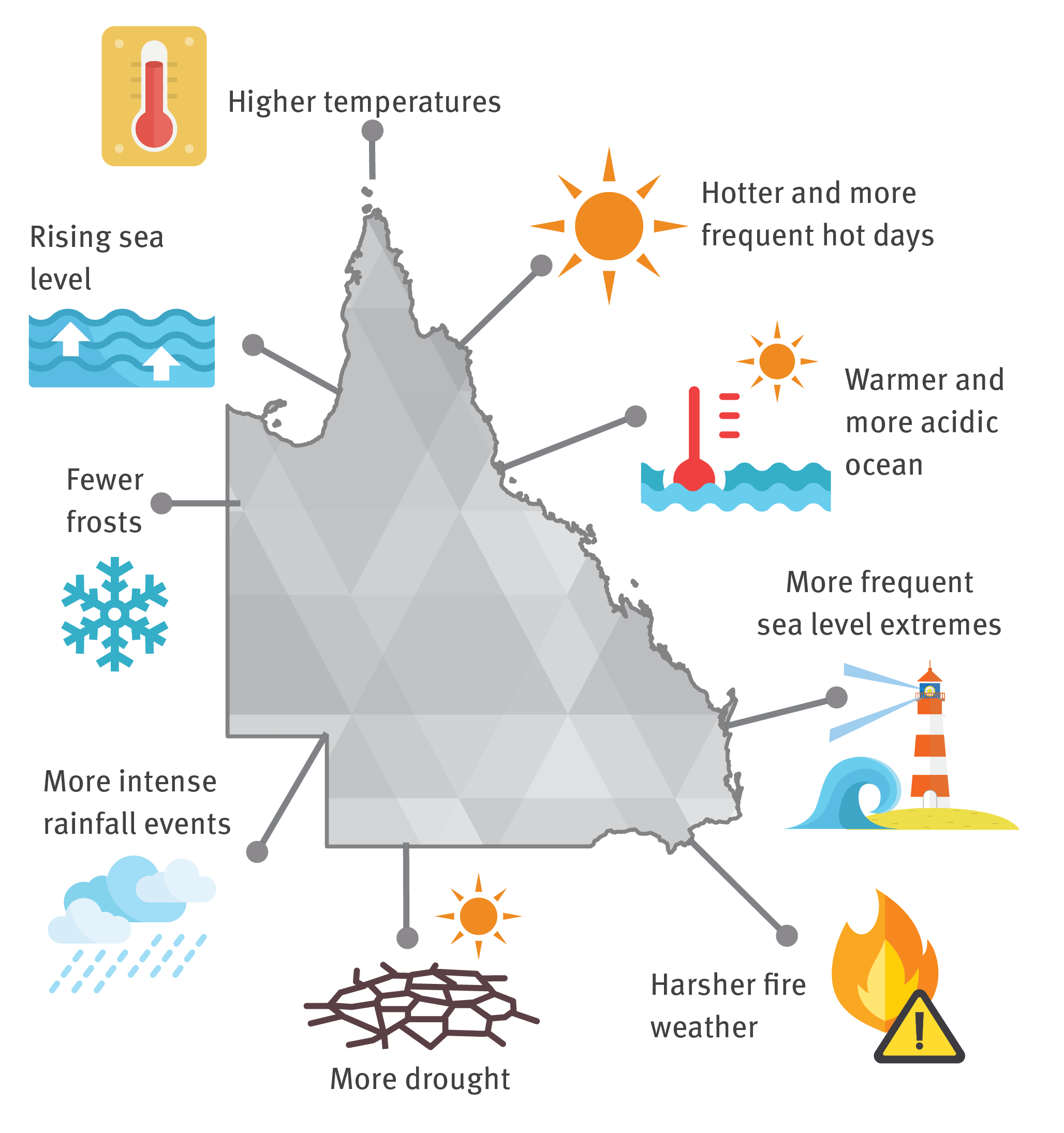
Project in Brief
The Queensland Climate Ready (QCR) Program was established in August 2018 and is a partnership project between Griffith University and the Department of Environment and Science (DES) to strengthen institutional climate risk management within the Queensland Government. The QCR Program sits under the Climate Ready Initiative which is a social impact initiative under Griffith Climate Action Beacon aiming to shape a climate ready future.
The Program works in partnership to help advance the Queensland Government’s:
- Understanding of climate change risks and capacity to manage these.
- Capability to deal with climate risks in a coordinated and consistent way across government.
- Progress on priority climate risks based on the best available knowledge, skills, and resources.
Need for the project?
The Program supports delivery of the Queensland Climate Action Plan 2020-2030 (QCAP), which requires Queensland Government agencies to report their climate change actions and identify and manage climate risks. To read more about Queensland Government commitments to climate change, click here.
Example climate change impacts for Queensland are displayed in Figure 1. These impacts have the potential to exacerbate existing risks and create new operational risks and opportunities for government agencies. Climate risk can disrupt public sector administration by affecting financial security, insurability, and legal liability as well as the ability of agencies to deliver on their strategic objectives if not managed.
What has been happening?
Phase 1 of the Program (2018-2021) included working with four pilot agencies to undertake climate risk baseline assessments of their agency which was effective in raising awareness and building agency capacity in climate risk management. The process helped agencies to identify both gaps and good work that was already underway. Griffith staff managed and delivered the program and provided a critical friend role that included: expertise; support; guidance; and a whole-of-government perspective. Phase 1 demonstrated critical steps to advancing climate risk management at the agency level, setting the strategic challenge, undertaking a baseline assessment, and ensuring there is an institutional strengthening process. Other achievements across Phase 1 included the establishment of a Core Partners Working Group comprising central agencies and delivery of two government knowledge sharing symposiums that engaged all agencies and 80-100 attendees at each one. These events raised awareness of the program and provided an opportunity to strengthen climate risk dialogue across government.
What is the current focus?
Phase 2 of the QCR Program commenced in June 2021 and delivered a third symposium and has engaged two new agencies to undertake baseline assessments. The QCR Program is also developing two guidance documents:
- A high-level strategic framework for an agency that frames a coordinated and consolidated approach to managing climate change and climate risk, that considers and addresses climate adaptation and mitigation.
- A detailed climate risk management guideline for government agencies to help advance their climate risk management in line with the Queensland Climate Adaptation Strategy and contemporary best practice.
We are looking forward to progressing deliverables to the end of 2022 and are planning how we can continue to have an impact in 2023 and beyond.
More Information
If you would like more information on the QCR Program, please contact the Project Manager Cheryl Briars: [email protected]

Climate change impacts for Queensland
Who is involved?
The project is a partnership between Griffith University and the Queensland Government Department of Environment and Science.

Top Photo : Brisbane from the Gallery of Modern Art. Image: Jaana Dielenberg


